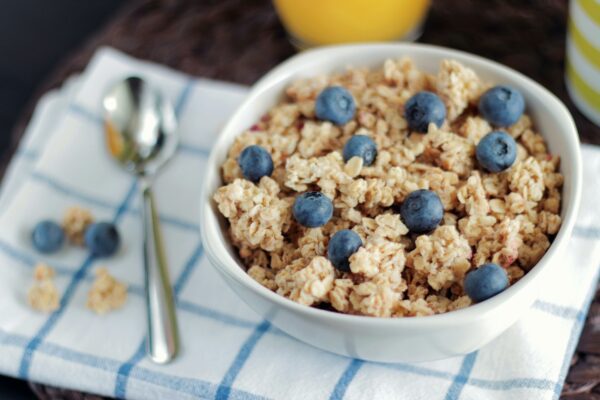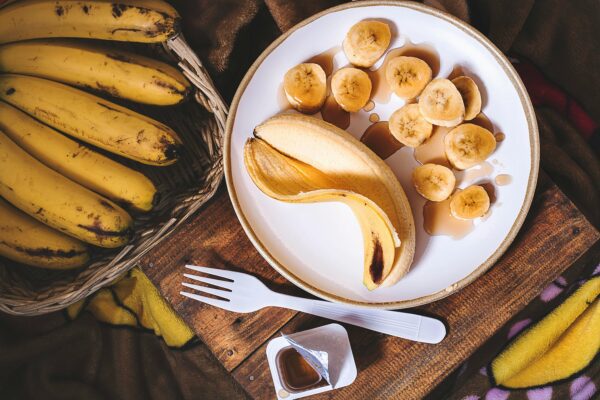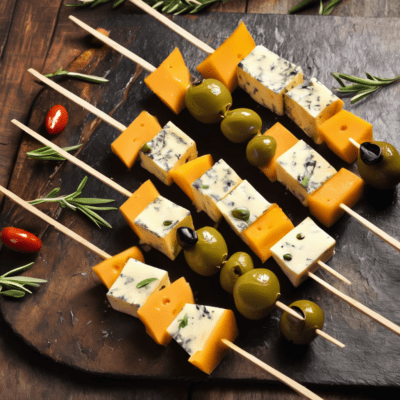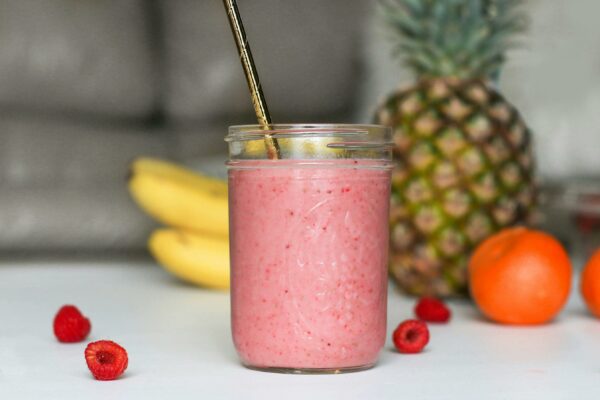Nutritious Soccer Snack Ideas
Soccer is a high-energy sport requiring stamina, agility and speed. Proper nutrition can fuel these efforts, and help players perform better on the field. Having the right soccer snacks can make a big difference, offering athletes the energy they need to excel. In this blog post, we’ll explore some nutritious snack ideas that are not only tasty, but will also provide the nutritional boost soccer players need.
It’s important to note, however, that snacks are just one part of a comprehensive diet plan. Ensuring you have a steady intake of balanced meals is equally crucial. In soccer, your body needs a mix of carbohydrates, proteins, and fats to function at its best. This means incorporating a wide range of foods, from fruits and vegetables to lean meats and dairy products. With this in mind, let’s dive into our ultimate guide to nutritious soccer snacks.



Carbohydrates and Their Importance in Soccer
Carbohydrates are valuable for soccer players as they provide the body with glucose, which is essential for energy. During a soccer match or training session, the body needs a steady supply of this glucose to maintain energy levels and prevent fatigue. Foods rich in carbohydrates are an excellent source of fuel before and after the game.
While it’s important to keep a balanced diet, higher carbohydrate intake is typically recommended for athletes due to their extended periods of intense physical activity. This is especially true for soccer players, whose sport requires continuous running, kicking and strategising throughout a match. Carbohydrates keep your energy levels steady and help in speedy recovery post-game.



Carbohydrate-Rich Snack Ideas for Soccer
Carbohydrates are crucial for soccer players as they provide the energy needed for intense physical activity. Here are some carbohydrate-rich snack ideas perfect for soccer players:
- Bananas: Portable and packed with natural sugars and carbohydrates, bananas are excellent for a quick energy boost.
- Whole Grain Sandwiches: Opt for whole grain bread filled with lean protein like turkey or chicken for sustained energy release.
- Energy Bars: Look for bars specifically designed for athletes, with a good balance of carbohydrates, protein, and fats.
- Trail Mix: Make your own mix with nuts, dried fruits, and whole grain cereal for a satisfying and energy-dense snack.
- Greek Yogurt with Honey and Fruit: Greek yogurt tubes provide protein while honey and fruit snacks like berries add natural sugars and carbohydrates.
- Oatmeal: Prepare a bowl of oatmeal with milk or water and top it with fruits and nuts for a hearty and energy-rich snack.
- Rice Cakes with Nut Butter: Spread almond or peanut butter on rice cakes for a quick and convenient carbohydrate-rich snack.
- Homemade Smoothies: Blend fruits like bananas, berries, and mango with Greek yogurt or milk for a refreshing and nutrient-packed drink.
- Pretzels: These salty snacks are also rich in carbohydrates, making them a convenient option for quick energy replenishment.
- Hummus and Whole Wheat Pita: Hummus provides both carbohydrates and protein, while whole wheat pita offers complex carbohydrates for sustained energy.
Remember to drink plenty of water alongside these snacks to stay hydrated during intense physical activity like soccer.



Powering Up with Protein: The Role of Cheese
Protein is an essential nutrient for muscle building and recovery. After a hard game of soccer, muscles need protein to repair tissue and promote growth. Cheese, a rich source of protein, can play a significant role in a soccer player’s diet. It not only serves as a good source of protein, but also offers calcium, a mineral essential for bone health.
Although too much cheese can be high in saturated fats, moderate consumption is key. Opt for healthier varieties like mozzarella and cottage cheese, which have lower fat content. Combining cheese with a carbohydrate-rich food creates a balanced snack suitable for a soccer player’s nutritional needs.



Tasty Cheese-Based Soccer Snacks
Cheese-based snacks can provide a good source of protein and calcium for soccer players. Here are some tasty options:
- Cheese and Crackers: Pair slices of your favorite cheese (such as cheddar, mozzarella, or pepper jack) with whole grain crackers for a satisfying and portable snack.
- Cheese Quesadillas: Fill whole wheat tortillas with shredded cheese and grill until the cheese is melted and the tortilla is crispy. Cut into wedges for easy snacking.
- Cheese Sticks or Cubes: Snack on cheese sticks or cubes for a convenient and protein-rich option that requires no preparation.
- Cheese and Veggie Skewers: Thread cubes of cheese along with cherry tomatoes, cucumber slices, and bell pepper pieces onto skewers for a colorful and nutritious snack.
- Caprese Skewers: Alternate cherry tomatoes, fresh basil leaves, and mozzarella balls on skewers, then drizzle with balsamic glaze for a flavorful and protein-packed snack.
- Cheese Roll-Ups: Spread cream cheese or hummus on whole wheat tortillas, then layer with slices of cheese, turkey or ham, and lettuce. Roll up tightly and slice into bite-sized pieces.
- Cheese Dip with Veggies: Serve a creamy cheese dip alongside a variety of raw vegetables like carrots, celery, bell peppers, and cucumber slices for dipping.
- Cheese and Fruit Platter: Arrange slices of cheese with fresh fruit like grapes, apple slices, and strawberries for a balanced and satisfying snack.
- Cheese-Stuffed Mini Peppers: Fill mini bell peppers with a mixture of cream cheese and shredded cheese, then bake until the peppers are tender and the cheese is melted and bubbly.
- Cheese and Olive Skewers: Thread cubes of cheese along with green and black olives onto skewers for a savory and satisfying snack option.
These cheese-based snacks are not only tasty but also provide the protein and energy needed for soccer players to perform at their best.



Balancing Your Soccer Diet: From Snacks to Meals
A well-rounded soccer diet involves more than just snacks. It should also include balanced meals containing lean proteins, grains, fruits and vegetables. Remember, snacks are meant to supplement meals, not replace them. They help in maintaining energy levels during the day and aid muscle recovery post-exercise. Regular meals provide the larger nutritional foundation and should not be overlooked.
Your meals should include a good mix of carbohydrates and proteins. For instance, a breakfast of eggs, whole grain toast and a banana provides a good balance of these nutrients. For dinner, lean chicken breast, steamed vegetables, and brown rice is an example of a healthy, replenishing meal. A truly balanced diet plan includes both meals and snacks, and understanding what each of them offers is important in maintaining energy and fitness levels for the sport of soccer.



FAQs About Soccer Snacks Ideas



Selecting the right snacks is crucial for soccer players to maintain energy levels, support performance during games and training, and aid in recovery afterward. Here’s a summary of key points regarding soccer snack ideas:
- Pre-Game Snacks: Opt for snacks rich in carbohydrates to provide quick energy, such as bananas, energy bars, or whole grain crackers with cheese.
- Halftime Snacks: Choose easily digestible carbohydrates like orange slices, energy gels, or sports drinks to replenish energy stores and stay hydrated during longer matches.
- Protein Snacks: Incorporate protein-rich snacks like nuts, yogurt, cheese, or turkey wraps to support muscle repair and recovery.
- Tournament Snacks: For soccer tournaments, focus on snacks that provide sustained energy and hydration, such as sandwiches with lean protein, fruit with nut butter, or homemade energy bars.
- Gluten-Free Options: Ensure there are gluten-free snack options available, such as rice cakes with almond butter, yogurt with gluten-free granola, or veggie sticks with hummus.
- Post-Game Recovery Snacks: After a soccer game, refuel with a combination of carbohydrates and protein to support muscle recovery, such as chocolate milk, turkey and cheese roll-ups, or a protein smoothie.
By incorporating a variety of nutritious snacks into your routine, you can fuel your body effectively, optimize performance on the field, and support overall health and well-being as a soccer player.





